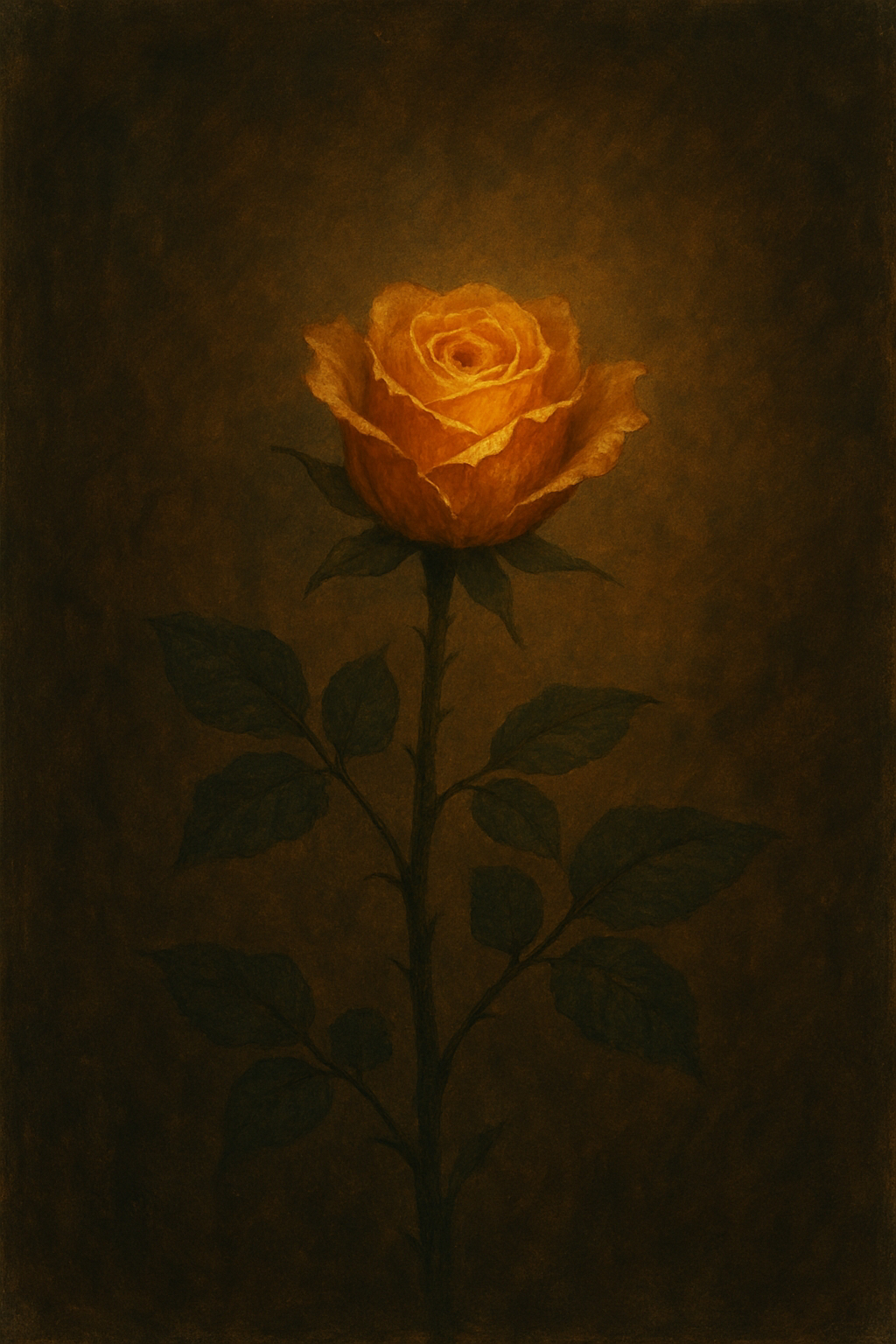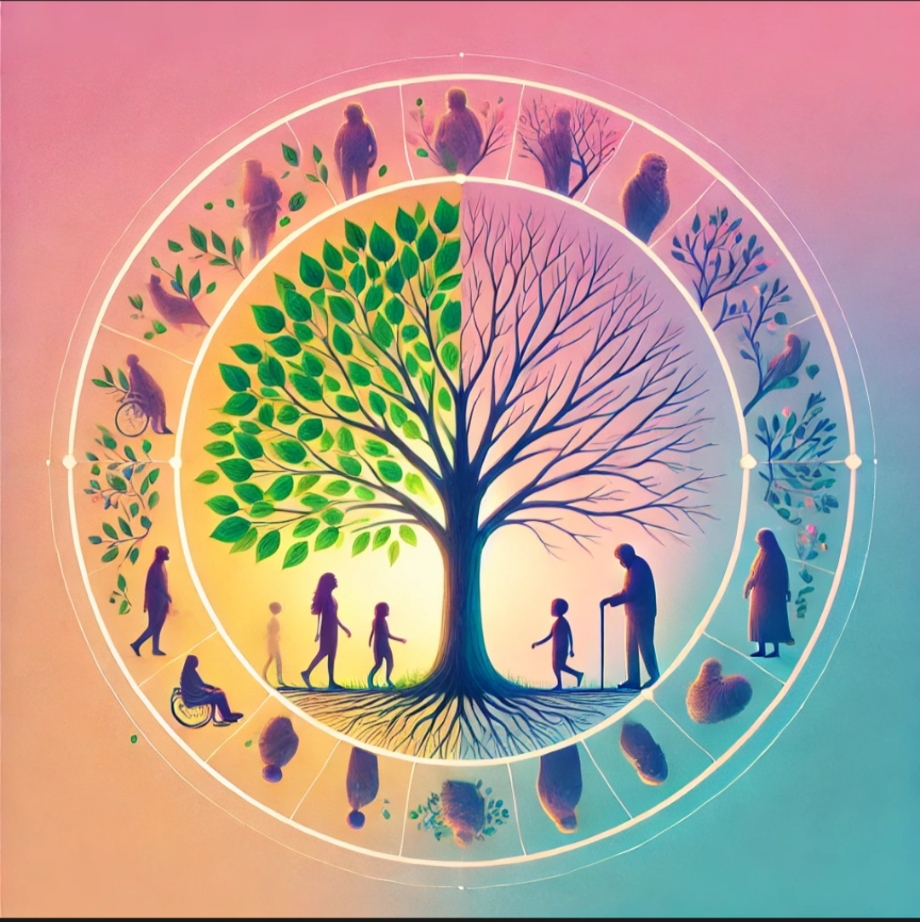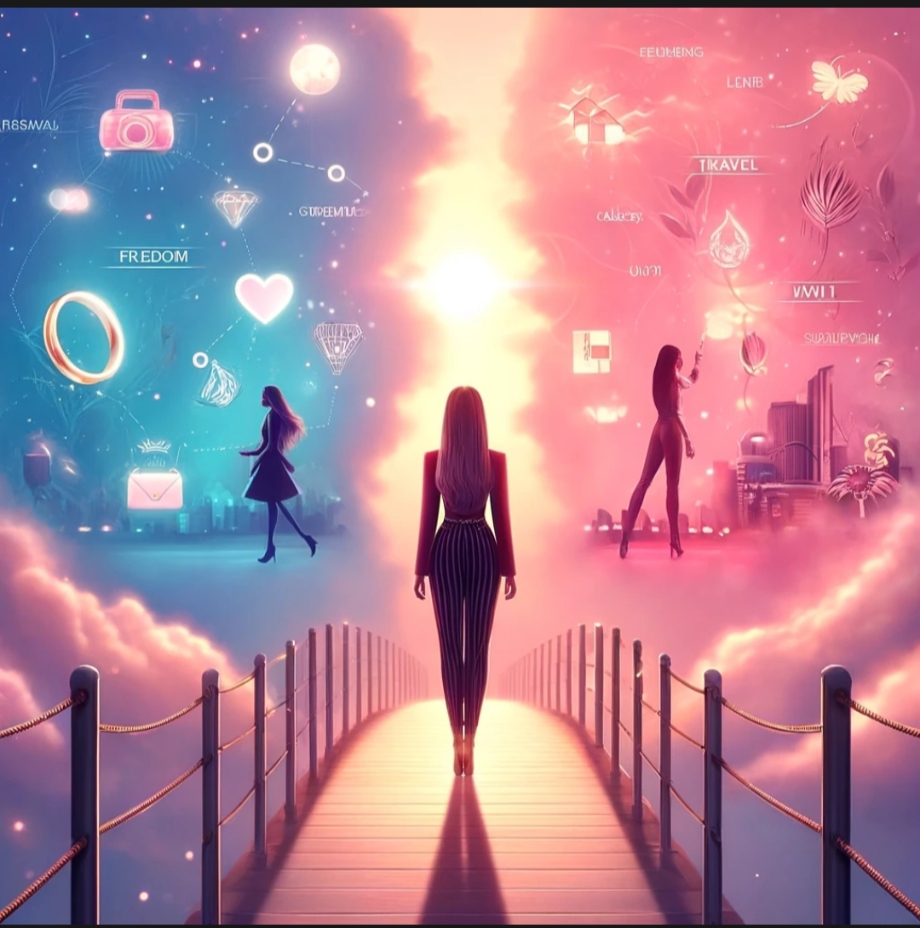The Confident Curve
Sunday, May 4, 2025
"Grown-Up, Not Numb"
Friday, May 2, 2025
"When Red Turns to White"
Tuesday, April 1, 2025
" The Hands That Raised Us "
Saturday, March 8, 2025
"Why Should Age Define Us??"
------------
From the moment we are born, age becomes a defining factor in our lives.From childhood to adulthood, there are invisible deadlines for everything. When to start working, when to get married, when to have kids—when to settle down. And if you don’t check all the boxes at the right time, society makes sure you feel it. I’ve lost count of the number of times I’ve heard someone say, “You’re too young for this” or “Aren’t you too old to be doing that?” It’s as if life comes with a strict timeline, and the moment you step outside of it, people start raising their eyebrows. Society has assigned invisible deadlines to human existence, making age not just a number but a measure of success, capability, and even worth. But why does age hold so much power over us?
If you achieve something too soon, people question if you really deserve it. If you take longer, they wonder what went wrong. A 30-year-old living with their parents is looked down upon, but a 22-year-old living alone is told they’re moving too fast. A woman in her 40s deciding to go back to college? “Why now?” A man in his 60s starting a new career? “Shouldn’t you be retiring?” It seems no matter what you do, there will always be someone who thinks you’re doing it at the wrong age.
Interestingly, age is not judged equally for everyone.I have often wondered—why is age not judged equally for everyone? I have seen it, I have heard it. The whispers at family gatherings, the pointed questions at weddings, the casual remarks slipped into conversations as if they were harmless.
“She’s in her 30s and still unmarried? What’s wrong with her?”
But when it comes to a man of the same age, there is no urgency. No one asks why he hasn’t settled down yet. In fact, he is often reassured—"There’s no rush, he has time.” A man, according to society, can get married whenever he pleases. His age is not a factor, but for a woman, an invisible clock is always ticking.
And it doesn’t stop there. The scrutiny follows a woman throughout her life. If she reaches her 50s and dares to wear makeup, dress fashionably, or simply take pride in her appearance, she is met with disapproving stares. “Why is she trying so hard? Doesn’t she know her age?” Meanwhile, a man can wear what he likes, at any age, and no one bats an eye. A salt-and-pepper-haired gentleman in a well-tailored suit is “distinguished,” but a woman who embraces her style and confidence is “trying too hard.”
Workplaces also reflect this bias. Young professionals are dismissed for being “too inexperienced,” while older employees are pushed out for being “outdated.” It seems that at every age, we are either too young, too old, or never quite right.
This double standard is woven so deeply into our culture that many don’t even question it. Why is one given the freedom to live life on his terms, while the other is constantly reminded of societal expectations?
Aging is a natural process, yet society treats it as something to fear.But what if we stopped seeing age as a limitation and started seeing it as just another part of who we are?
The truth is, age should not define our abilities, our dreams, or our worth. Success has no deadline. People have started businesses in their 50s, run marathons in their 60s, and found love in their 70s. Others have taken their time to heal, learn, or start over at an age society deemed “too late.”
The only timeline that truly matters is the one that feels right for you. It’s time to stop letting numbers dictate our lives and start embracing every stage of our journey with confidence.
So, the next time someone tells you you’re “too young” or “too old,” remember: your life is yours to live—at your own pace, in your own time.
------------
As we journey through life, society often tries to measure our worth by the years we've lived rather than the experiences we've gained. But age is not a deadline, nor is it a limit to our dreams, our choices, or our happiness. Whether you are 30 and single, 50 and rediscovering yourself, or 70 and embracing new adventures, your life is yours to shape.
Let’s stop letting numbers dictate our joy. Let’s wear what we love, pursue what excites us, and break free from the expectations that hold us back. Because the truth is—our worth is not measured by age but by the life we choose to live.
-----------
So go ahead, embrace yourself at every stage. You are not "too old" or "too young"—you are simply YOU, and that is always enough.
Thursday, February 13, 2025
" Single, Strong and Questioned : The Reality of being a single woman in society"
Friday, February 7, 2025
"The Men Who Choose Home"
Tuesday, February 4, 2025
Breaking Free from the Social Media Pressure: A Journey of Self-Discovery
"Grown-Up, Not Numb"
Dear you, the one reading this with tired eyes and a heavy heart — this one’s for all the times you were told to be strong when ...

-
Hello, my people!Let’s talk about something that so many of us experience but rarely get to discuss openly—the reality of being ...
-
In a world that often glorifies hustle culture and endless to-do lists, taking the time to care for ourselves can feel like a radical act. Y...
-
Image Courtesy: Pexels.com A mother's heart, once pure and bright, Now trembles in the dead of night. Her voice, once strong, now whispe...






